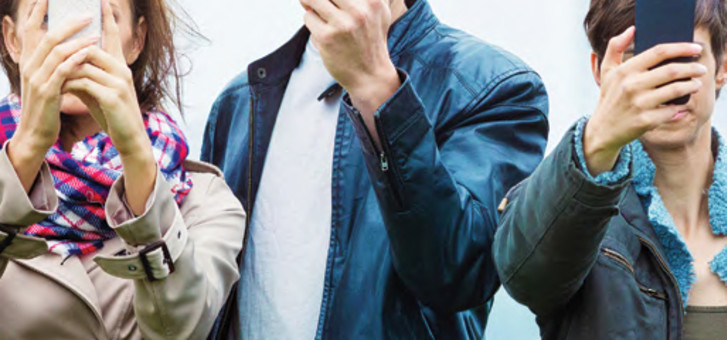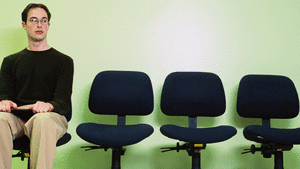Last January, students and faculty at Deer Valley High School in Glendale, Arizona, USA, took 1449 self-portraits in one hour, thus winning the title for “Most self-portrait photographs (selfies) taken in 1 hour” in the book of Guinness World Records. For many, however, selfies are not simply a fun competition. Taking and posting selfies on social media sites is a way of life—even an addiction.
Psychiatrists are suggesting that selfie addiction is now a mental disorder. It has become a serious mental health problem that’s often linked to low self-esteem and bullying. Danny Bowman is an example of this. Like most teenagers, he was self-conscious about his looks. But his addiction to taking the perfect selfie began when he was just 15 years old. Danny says that he “was mortified” when he began receiving negative comments on Facebook about his looks. This led to him taking up to 80 selfies at a time in order to get the perfect look that no-one would criticise. His addiction led to weight loss, selfie- bingeing, his dropping out of school and an attempted suicide.
Media and marketing are partly to blame for this new addiction. Actors, singers and models post edited selfies that inevitably make today’s teens and young adults dissatisfied with their own bodies. Companies have picked up on the trend. Among the best selling Christmas gifts of 2014 was the selfie stick, which allows you to take a photo of yourself at more than an arm’s length, by placing your smart phone at the end of an extendable wand. And a London fashion designer has even designed a pink, sparkly, selfie hat for women! If you Google it, you will find numerous articles on how to take the perfect selfie.
It used to be that people looked for acceptance from within their circle of friends. But now it seems that we look for approval from thousands of complete strangers. “Never before in our history have we been able to talk to millions of people with a single picture,” says Julie Hanks, a counsellor based in Salt Lake City, USA. “In the past, we sought attention from people in our circle. Now we can seek approval from strangers and there’s more opportunity for narcissists to seek attention and validation.”
I asked a 22-year-old university student why her generation is so obsessed with selfies. She answered: “A lot of kids base their life accomplishments on how many ‘likes’ they can get on a picture they post. It’s instant gratification. You don’t have to even know the people who are ‘liking’ your selfie. It just makes you feel good that someone thinks you’re attractive. And with all the photo apps out there, you can make yourself look better than you really are. There are apps that will give you longer eyelashes, whiten your teeth, change your eye colour, make you thinner, highlight your hair and basically change you into someone else. So essentially, it’s a way to hide who you really are and fish for compliments, because you’re not confident in yourself.”
Selfie of your heart
Although there are probably many people who occasionally take and post selfies for good reasons—to remember a special moment or share an event with friends back home— many are falling into the "selfie generation" trap. It's a generation where "me" is more important than others— and even more important than Him.
Could this be part of what the apostle Paul warned us about in 2 Timothy 3:1–5? “There will be terrible times in the last days. People will be lovers of themselves, lovers of money, boastful, proud, abusive, disobedient to their parents, ungrateful, unholy, without love, unforgiving, slanderous, without self-control, brutal, not lovers of the good, treacherous, rash, conceited, lovers of pleasure rather than lovers of God—having a form of godliness but denying its power” (italics added).
It all sounds too familiar, doesn’t it?
So what are we, as a selfie-loving generation, missing? We’re missing out on people getting to know our real selves.
When I asked the 22-year-old why she hasn’t gotten caught up in the selfie trend, she answered, “I guess it’s because so many people I know look very different on Facebook or Instagram than they do in real life.
My friends already know what I really look like—and I don’t want to be a fake to people I haven’t met yet.”
We’re also missing the example set by God when He said, “The Lord does not look at the things people look at. People look at the outward appearance, but the Lord looks at the heart” (1 Samuel 16:7).
The heart. Our hearts. That’s what matters most. So what do our hearts look like? If it were possible to take a selfie of our hearts and post it on our social media site, what would people see? Selfishness? Bitterness? Judging? Envy? Hate?
There’s a Bible text that describes what a person’s heart looks like when they imitate how Jesus treated people: it will be filled with “love, joy, peace, forbearance, kindness, goodness, faithfulness, gentleness and self-control” (Galatians 5:22, 23). That’s quite a contrast from the characteristics described in 2 Timothy!
Jesus does make a difference. He can “edit” our hearts to be people who are known not for our looks, but for how we treat others.






